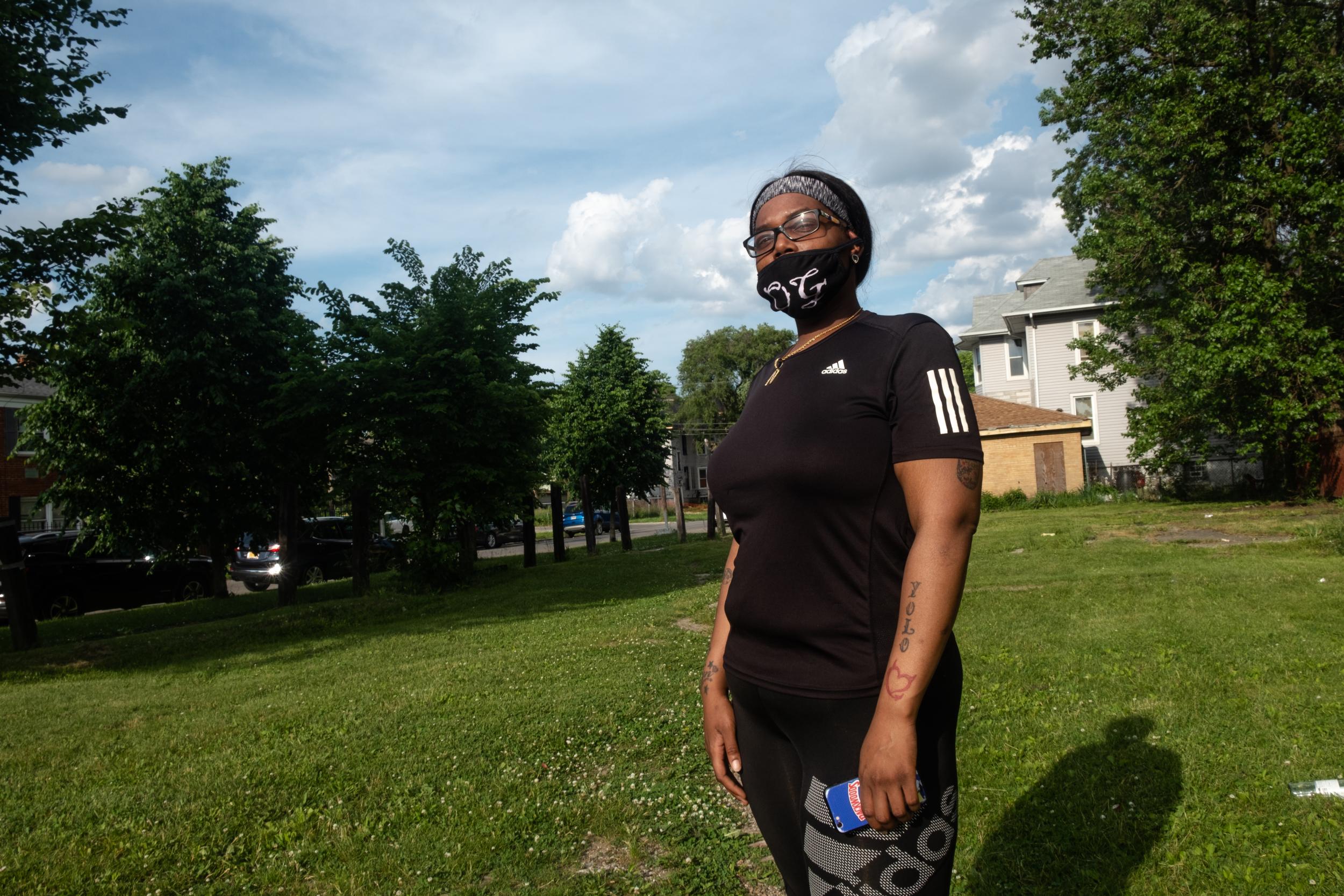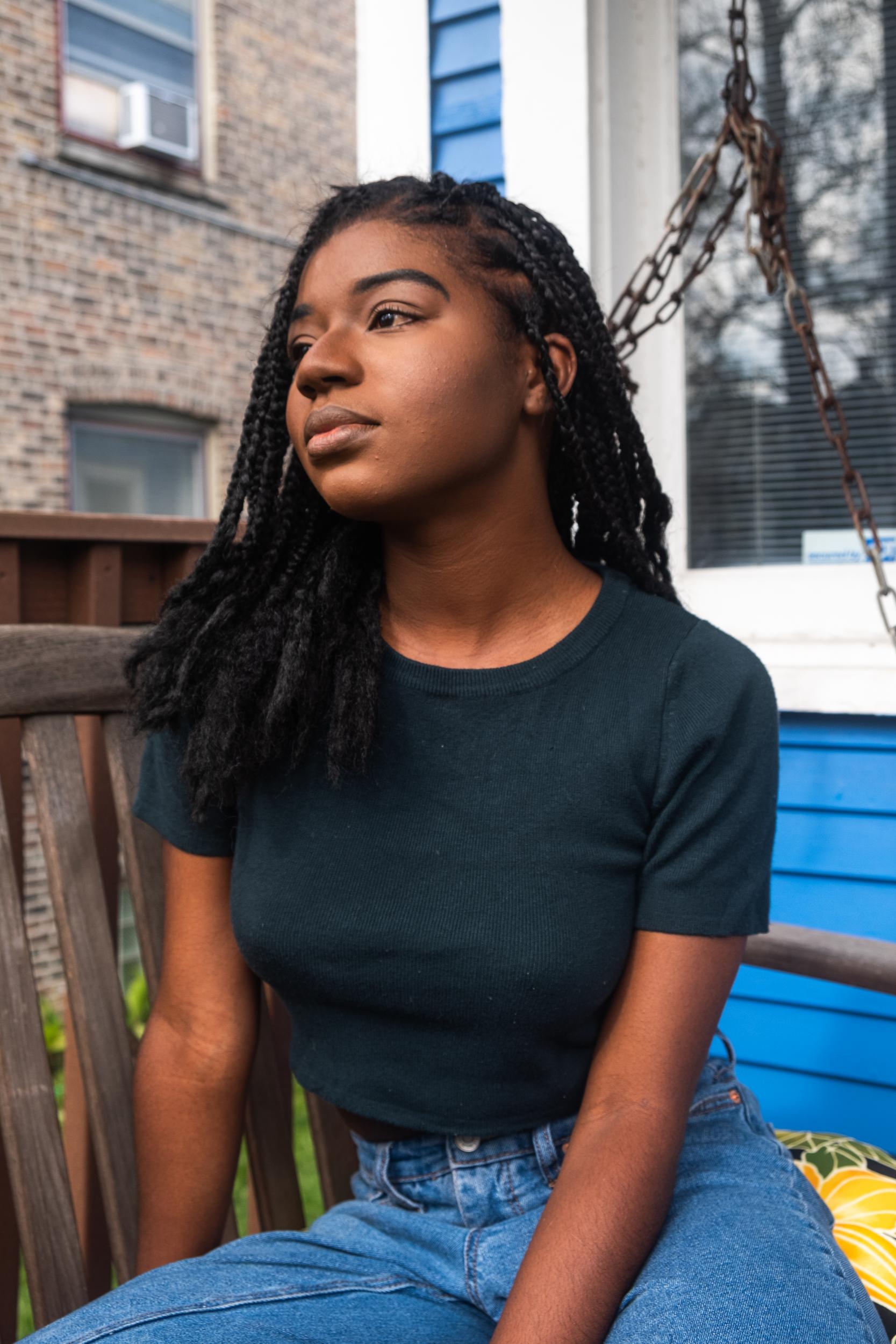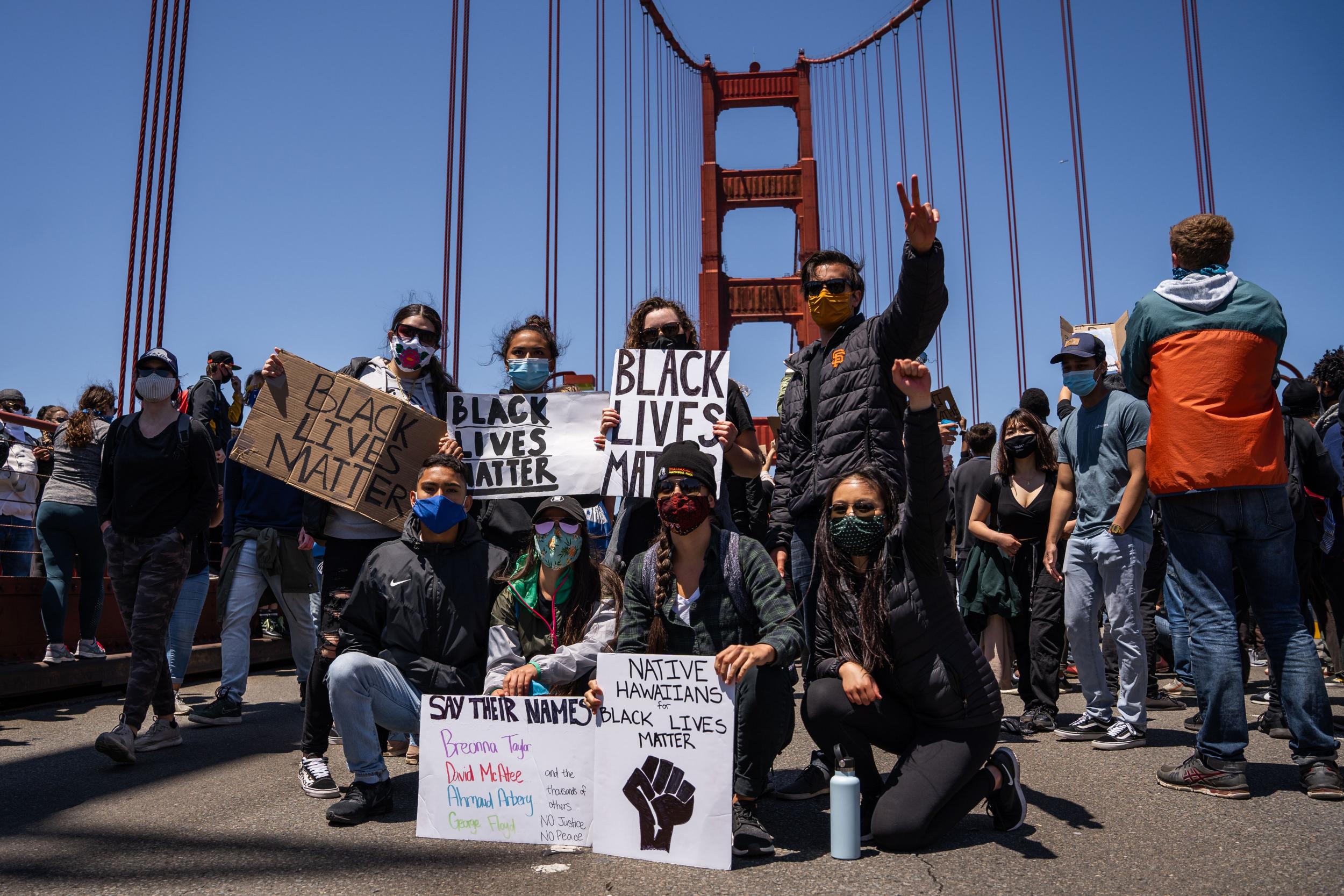US sees spike in white people sending money to their black friends to combat guilt amid George Floyd protests
‘She was trying to do something that made her feel good. I don’t think it had anything to do with me,’ says woman whose co-worker sent her money

Your support helps us to tell the story
From reproductive rights to climate change to Big Tech, The Independent is on the ground when the story is developing. Whether it's investigating the financials of Elon Musk's pro-Trump PAC or producing our latest documentary, 'The A Word', which shines a light on the American women fighting for reproductive rights, we know how important it is to parse out the facts from the messaging.
At such a critical moment in US history, we need reporters on the ground. Your donation allows us to keep sending journalists to speak to both sides of the story.
The Independent is trusted by Americans across the entire political spectrum. And unlike many other quality news outlets, we choose not to lock Americans out of our reporting and analysis with paywalls. We believe quality journalism should be available to everyone, paid for by those who can afford it.
Your support makes all the difference.Parker Gillian laughed the first time a white co-worker sent her money unprompted. It was all she could do.
Since protests erupted last week over the death of George Floyd, a black man who died in police custody in Minneapolis, Ms Gillian had been hearing from white acquaintances who wanted to check in on her wellbeing. There was a straightforward logic to it: she is a young black woman in Chicago and there is a civil rights movement playing out nationwide, on streets and on screens, with black people at its centre.
But some of the people who reached out were not especially close to her. And even those who were actually friends seemed to subtly ask for her guidance about how they, Good White Allies, should handle the moment. The wave of good intentions started to feel like a riptide.
Then on Monday night, the direct message popped up on her Instagram account.
“What’s your Cash App?” wrote a co-worker, referring to the mobile payment application.
Ms Gillian sent over her username, confused. “U my sugar daddy?” she wrote back as a joke.
Soon, $20 (£15) landed in her account.
With it came pangs of humiliation.
“I felt like a charity case,” said Ms Gillian, a recent college graduate working in marketing, who said she had never expressed any financial need. “I know that she didn’t mean it in the way I took it. But I couldn’t help but take it that way. I think she was just trying to do something that made her feel good. I don’t think it had anything to do with me.”
As protests have gripped cities across the country to protest Floyd’s death and police brutality against black people, there are more white people visibly participating than in previous such demonstrations, sometimes carrying signs that decry white privilege or condemn “white silence”. White celebrities and sports figures have taken to social media to confess their past ignorance on race and loudly proclaiming their “allyship” with black Americans.
And in more private interactions, black people have also found themselves suddenly fielding a surge of “check-ins” from white friends and acquaintances – sometimes welcomed, but at other times deeply awkward and adding to the emotional toll of the moment.
“It is so exhausting being everybody’s one black friend right now,” tweeted comedian Sarah Cooper.
Monique Melton, who conducts workshops on “anti-racism”, said even innocuous-seeming gestures are loaded with a history and a power dynamic some white acquaintances may not understand. Sending money without any communication beforehand is a particularly egregious faux pas, but so is assuming familiarity with a person with whom you are not actually friends.
“During times like these, it is very uncomfortable to hear from people I haven’t heard from in a very long time. Because it’s like, OK, now you’re noticing I’m black? I have been black our whole friendship,” said Ms Melton, who shares advice on race issues to her 230,000 Instagram followers.

Among those well-meaning white people is Elena Cleaves of Kansas City. As protests began to grow last week, she wanted to check in with some of her black friends – but she was worried it would be taken the wrong way. She searched the Internet for others’ opinions and expertise on the topic “because I’ve seen a lot of people posting a reminder that you’re not the only one messaging your black friends”.
She wanted to make sure she was not creating an emotional burden for her friends, she said, but also that she was not missing an important moment to help if they needed anything. She settled on a simple rule: she would only check in with people of colour she already interacted with on a daily basis before the protests, those who she felt would receive her message with a sense of relief and not as an additional burden.
“I’ve been doing social media activism for a long time. Anyone can do a post and say Black Lives Matter and leave it there. When I was young, I wasn’t branching out beyond my comfort zone, beyond my high school and my rich, white army family. I could shout out my activism into the void and nobody was calling me out if I wasn’t backing it up,” she said. “That’s a really hard thing to admit, and it’s really uncomfortable.”
Last week, Ms Cleaves attended the first protest of her life. She started a thread on Twitter offering small donations to black people who needed a little help, a phenomenon that has become common on social media. It felt like a small overture but like a meaningful one. Over the past few days, she has donated about $100 (£78) out of pocket.
Was it an attempt at reconciliation? Was it enough?
“At the end of the day, it’s tangible,” she said. “Plus, right now, we don’t need another white ally talking on Facebook about how it took me so long. We need action.”
Ms Melton said she believes the phenomenon of distant acquaintances sending money to black people, like what happened to Ms Gillian, may stem from confusion over a common adage repeated by black social media influencers: “pay black people”. The saying is meant to encourage investing in black businesses and paying for work made by black artists.
And as newly inspired white allies seek information and guidance, there has been a crush of advice posted on social media by lifestyle and wellness influencers – not all of it good.
For instance, on Sunday, social media influencer Shirin Eskandani, who works as a life coach, posted a how-to guide about “how to check in on your black friends” on her Instagram account. The slide show encouraged readers to send “short and loving” messages, not to expect a response and to avoid unburdening emotionally in a self-centred way. She added a note of caution about being overly familiar with acquaintances who are not actually friends.

But then: “If you do not know this person or have not been in touch for a while, do NOT try to create a sense of intimacy that isn’t there. INSTEAD send them money (Venmo $5) and check in on your own Black friends,” she wrote.
“$5 (£3)? Gee, thanks. Racism solved,” one user responded on the thread, summarising Ms Gillian’s response as well.
Ms Eskandani declined to comment for this story.
At the same time, it is also true that the pandemic has disproportionately affected black communities medically and economically. And there are those in dire financial situations who are requesting help.
In March, Torianna Chess was laid off from her back-of-the-house job at a ramen restaurant in Chicago because of the pandemic. Ms Chess, who is black, has not received any unemployment compensation because of glitches on the website, she said, and has been unable to reach anyone in the government despite hours and hours of phone calls. With a young son and a disabled brother for whom to care, she has fallen months behind on rent.
At this point, she said, she has given up on ever receiving unemployment assistance.
Several months ago, she saw some accounts on Twitter offering to give money at random to people who tweeted their Cash App or Venmo handles. She began to scour the Internet for those Twitter threads, desperate for any assistance while she finds another job.
But it was not until the protests broke out that she started receiving money with any regularity, about $220 (£173) in donations so far this week, she said.
It is not enough to compensate for what the state should be providing with unemployment compensation, she said. But she has been extremely moved by the gesture.
“The notes they leave are in support of Black Lives Matter. When I read the comments back, they really do appreciate us and want to help us,” she said. Still, “I’d rather be working and making my own money than sitting here asking people for money.”
Farther west in Chicago, Ms Gillian felt racially profiled by her own friends. She still had her job. She grew up in Oak Park. She lived with her affluent grandparents.
So she used a combination of humour and sincerity to make the situation less awkward after she received the unexpected $20 payment on Cash App.
“I would rather this money be donated or used in other ways than ‘aiding’ me. I know you and I know your heart is in the right place, but I can’t accept it,” she wrote the next day, after some reflection.
“Ok I’ll donate it! Any specific place you want me to donate? Also I hope I didn’t offend you,” responded the co-worker.
When Ms Gillian told another white friend about the situation via Instagram, also couched in an all-capitalised joke – “I THINK IT’S REPARATIONS!” – the friend mistakenly took it as a request. She asked Ms Gillian for her Venmo account.
This time Gillian was blunter.
“I love you and y’all are sweet but I don’t need your money. If you want to give money, donate it,” she wrote back.
The Washington Post
Join our commenting forum
Join thought-provoking conversations, follow other Independent readers and see their replies
Comments